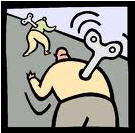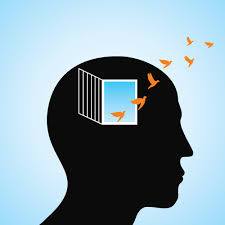 Questions to consider: Am I a creature of fate, of gigantic forces beyond my control? Am I a mysterious mixture of body and spirit, part determined and part free? Am I an electronic computer programmed by my environment? Is my feeling of being free to shape my future just an illusion? Is it fair to punish a boy for stealing when his parents taught him to steal? Does it make sense to say that a person could have chosen to act other than the way he or she actually did act? If every idea a person expresses is strictly determined, why philosophize?
Questions to consider: Am I a creature of fate, of gigantic forces beyond my control? Am I a mysterious mixture of body and spirit, part determined and part free? Am I an electronic computer programmed by my environment? Is my feeling of being free to shape my future just an illusion? Is it fair to punish a boy for stealing when his parents taught him to steal? Does it make sense to say that a person could have chosen to act other than the way he or she actually did act? If every idea a person expresses is strictly determined, why philosophize?Introduction:
 How much and what kinds of freedom do human being possess? This question is one of the most frequently asked and hotly debated in philosophy. The issue raised is one close to the core of the average person’s life. In this modern age, the intellectual, social, and personal implications of freedom question are so vital and pervasive that only the rarest of individuals can remain unconcerned. it is often argued that any stand on morals and ethics is tied unalterably to the position on human freedom.
How much and what kinds of freedom do human being possess? This question is one of the most frequently asked and hotly debated in philosophy. The issue raised is one close to the core of the average person’s life. In this modern age, the intellectual, social, and personal implications of freedom question are so vital and pervasive that only the rarest of individuals can remain unconcerned. it is often argued that any stand on morals and ethics is tied unalterably to the position on human freedom.The problem of freedom and determinism stems from our attempts to reconcile two convictions that most of us have. First most of us believe that we are responsible for our moral choices and acts because we have the freedom and the ability to make such choices and perform such acts. Second, every event — including our choices and acts — seems to be caused by something else. But if this latter idea is true, how can we still be held responsible for choices and acts that we were “caused” to make and to perform? The following alternatives attempt to emphasize and relate these convictions in different ways.
1. Strict Determinism
Strict (“hard”) determinists maintain that we live in the kind of universe where human choices and decisions are completely predetermined by fate, predestination , or natural causes. Let us look first at scientific determinism, the natural cause version of determinism.
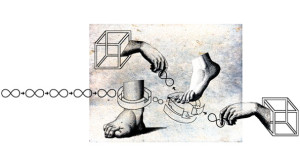 1.1. Scientific Determinism: Our daily thoughts and communications reflect the common-sense belief that explanations are intelligible only if they are framed in terms of causes. If someone asks you what you did or if someone demands to know why you are behaving in such-and-such a way, your answer is typically given in a manner that describes the factors that you believe have caused your actions. Virtually all our questions about the relationships among things — and particularly those questions about how things have changed or have come to be as they are — are asked in the expectations that the answers will identify at least some of the causes.
1.1. Scientific Determinism: Our daily thoughts and communications reflect the common-sense belief that explanations are intelligible only if they are framed in terms of causes. If someone asks you what you did or if someone demands to know why you are behaving in such-and-such a way, your answer is typically given in a manner that describes the factors that you believe have caused your actions. Virtually all our questions about the relationships among things — and particularly those questions about how things have changed or have come to be as they are — are asked in the expectations that the answers will identify at least some of the causes.To the advocate of scientific determinism, nothing happens in the universe without a natural cause. Human beings are part of the natural world;every human act or decision is simply one kind of natural event, and it, too, is caused.
One of the most stubbornly entrenched interpretations of the scientific method draws its strength from the basic assumption that every event can be traced back to its specific and antecedent natural causes. The argument is that the cause-effect principle operates and that its regular operation is the foundation on which the consistent concepts of science depend. The particular school of psychology that insists on limiting its study of human action to the objective observation of natural phenomena takes the specific determinist approach and is called behaviourism, or stimulus-response psychology. Supported by additional evidence from other behavioural sciences like anthropology and sociology, the conclusion that there are specific and identifiable causal factors operating in human life is strengthened. The scientific determinist position holds that what we call human choices may reflect our desires and even our central ideals, but that every motive, desire, ideal, or idea is simply the result of factors in our heredity and environment. How can anyone believe that an individual human being is “free” when the evidence from psychology reinforces the conviction that every response a person makes is a product of past learning? How can it be maintain that groups of human beings are free when anthropology so clearly shows that the language, the morals, indeed the entire way of life of different groups , are a direct result of cultural conditioning?
The case for scientific determinism appears unanswerable when we note the increasing accuracy and scope of predictions about human behaviour. As the prediction and control of human behaviour become more and more exact, the idea of “free will” becomes less and less tenable. Free will means “free from culture” and “free from past learning” — and both meanings are unsupportable.
First: The behavioural sciences do make accurate predictions about unreflective human responses (responses that are rigidly patterned by habit, strong emotion, or unconscious motives), but they are conspicuously less successful in predicting reflective responses (responses that are carefully deliberated and reasoned. Does scientific determinism take adequate account of the process we go through when we do make careful, deliberative choices? The claim here is not that we subjectively feel free in the act of choice, but that reflective choices result from an intricate process of weighing the consequence of alternative courses of action. We have the capacity to evaluate our own attitude and desires and thus reformulate our values and modify our behaviour in the choosing process.
Second: A human being is more than a determined process. A human being is also, at times, an agent conducting an activity. For example, planning and carrying out a scientific experiment is one kind of activity that demands for its accurate description more than cause-effect terms that describe processes. What scientists do is not and cannot be adequately accounted for in the language of scientific determinism. A scientific experiment is purposive, guided by reference to criteria, and liable to error. Its results are verifiable. None of these terms applies to processes. If you stop the scientific activity at any point and ask “Why this step?” you get as an explanation a reason, not a cause. Can you stop a brain process or stimulus-response reaction and ask “Why function that way?” Scientific activity, then, is “purposive” and “reasoned” — yet these two terms are not in the vocabulary of the behaviourist or scientific determinist. In short, the theory of behaviourism — scientific determinism — is unscientific in the precise sense that it cannot give an account of at least one important area of human behaviour: scientific activity itself.
1.2. Other determinst concepts: Determinism is found not only in the scientific community. It is also a factor in the daily lives of those who read horoscopes or hold certain religious convictions.
1.2.1. Fate: “I didn’t choose my parents,” we sometimes say. None of us chose the century into which we were born either. The american novelist Theodore Dreiser was acutely aware that he had not chosen his drug-addicted mother, who so deeply influenced his life. In light of such considerations, it seems only realistic to stress, as did the ancient Greeks in their idea of fate, their attitudes of fatalism, the limits on human freedom. Through the ages people have been haunted by the suspicion that their destiny is fixed by the stars. While many modern people reject astrology and appeal to the concept of chance, or accident, the idea that people could not decide their choices through free choice remains.
Our parents send us to a certain college (or to none, if that happens to be our fate), where the computer programs us into the class of Professor X, whose enthusiasm for subject Y is so contagious that we are irresistibly drawn to major in it. Yet we talk about our “freedom to choose.”
The idea of fate reminds us of our limits, our relative impotence and insignificance in the vastness of cosmos.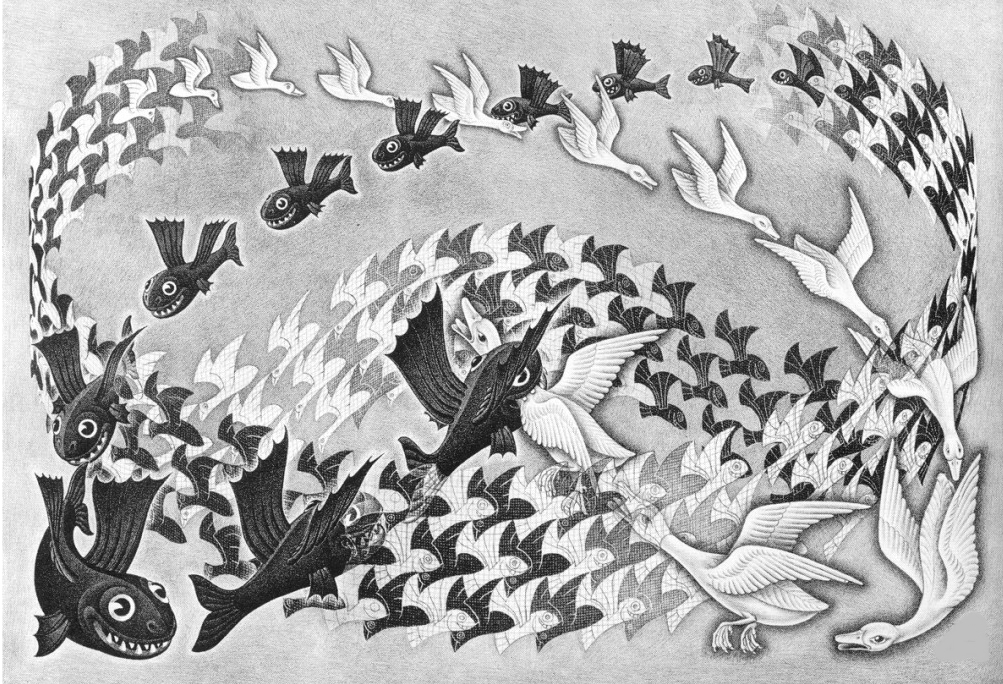

1.2.1.1. Critique of Fate: Logically, people could believe in fate, or predestination, as absolutely determining their lives and still go on living them as if they were full of the ambiguous, choice demanding, open-ended alternatives that they appear to be. Logically, people could put forth strenuous efforts to improve themselves and their society. But would they, in fact, be likely to do so? Would not the probable psychological effect of a belief in fate, or predestination, be a sense of resignation, an uncritical acceptance of the status quo — in a word irresponsibility?
 1.2.2. Providence and predestination: The religious concepts of providence and predestination contrast our smallness with the infinite greatness of God. God is all-good, but specially God is all-powerful and all-knowing. Finite human beings must not presume to understand God’s plan for the world and for God’s creatures. Why we were born and why we were created the way we are — male or female, smart or dull, black or white, tall or short — these are God’s impenetrable mysteries; it is best to accept humbly the role we have been assigned. God asks no more than that we accept without vanity or complaint what the divine will has ordained, for God has created us, not we ourselves.
1.2.2. Providence and predestination: The religious concepts of providence and predestination contrast our smallness with the infinite greatness of God. God is all-good, but specially God is all-powerful and all-knowing. Finite human beings must not presume to understand God’s plan for the world and for God’s creatures. Why we were born and why we were created the way we are — male or female, smart or dull, black or white, tall or short — these are God’s impenetrable mysteries; it is best to accept humbly the role we have been assigned. God asks no more than that we accept without vanity or complaint what the divine will has ordained, for God has created us, not we ourselves.For sixteenth-century theologian John Calvin, predestination means that the final destiny of each of us, salvation or damnation, has been settled in advance by the absolute will of God. God knows this destiny, but it remains forever inscrutable to us.
1.2.2.1. Critique of Providence and Predestination: James A. Pike makes the following criticism of providence and predestination:
Were to be supposed that … individuals are forever classified into one of two absolute categories — a state of complete bliss or a state of total torment, there is an inherent contradiction. Were the latter a fact, the former could not be.Presumably to qualify for heaven the candidates must have displayed some capacity of agape (unselfish love). So how could such loving persons be content in a heaven from which God has permanently excluded others with no chance for personal change or hope of ever receiving personal fulfilment? If these in heaven were really loving persons, their consciences would compel them, at the least , to stage a demonstration before the throne of the Most High or, more than that, to organize a “rescue party” to seek to save the lost
2. Indeterminism
2.1. The theory of indeterminism: The theory that decisions are, at least in certain cases, independent of any prior causes, physiological or psychological, is called indeterminism. The human will is not determined by anything other than itself. For example, René Descartes, seventeenth-century French mathematician and philosopher, described the freedom of will as infinite, with no limitations whatever on the mind’s power of choice.
The version of indeterminism put forth by William James, late nineteenth century American philosopher and psychologist, included the notion of pure chance events that are completely uncaused. He gave as an example his decision to walk down one street rather than another on the way home.
Charles Sanders Peirce, late nineteenth- and early twentieth-century American philosopher, physicist, and mathematician, held that the idea of universal determinism is an unwarranted scientific assumption. Peirce observations constantly turn up evidence of irregular departures from scientific laws. Indeed, he argued, the occurrence of undetermined, chance events is necessary to explain the great diversity of universe.
In the scientific realm, the claim for indeterminacy is supported by the observation that some subatomic particles behave in irregular and unpredictable ways that perplex the research physicist. The indeterminate behaviour of subatomic particles is sometimes cited to support the possibility of indeterminism on the human level.
James and others espoused chance and indeterminism on the ground that they allowed one to view the future as open and subject to improvement, with the result that people can be said to be morally responsible.
A caution is in order at this point. Indeterminism does not insist that the universe is chaotic, nor does it deny that human behaviour can be explained in terms of laws governing such behaviour. there must be sufficient uniformity in the world to allow us to depend on certain acts yielding certain effects so that we can make predictions about the consequences of our behaviour. In other words, indeterminism does not necessarily rule out some determinism in the universe. But as we have seen, the indeterminist insists that human behaviour is not completely explicable in terms of laws and that the world is open enough to permit humans to make genuinely free and responsible decisions.
2.1.1. Critiques of Indeterminism:
First: The theory of indeterminism asserts that human decisions cannot be traced to antecedent causes, that the human will is a cause that is not itself caused. But the whole notion of an event occurring without a cause goes against the teachings of common sense and undermines the foundation of the whole scientific enterprise. A belief in the indeterminateness of the will would render futile all attempts to understand human behaviour or to improve it.
Second: If people’s choices and actions are not determined by their established characters or by anything else, if they are the result of pure chance, what reason is there to believe that they would be theirs in any significant sense? Such choices and actions would be random, capricious, unreliable, and unexplainable. Since these are not the characteristics of most human behaviour, there must be something defective in the theories of chance and indeterminism.
2.2. Other indeterminist concepts: Indeterminism is basic to some conceptions of religion, morality, or the human condition itself.
 2.2.1. Freedom as God’s gift or free will: Some in the religious tradition of the West offer us an alternative view on the freedom-determinism issue. Humankind was created in God’s image and was given the gift of free will. This gift is symbolized in the story of the Garden of Eden, Adam and Eve, the first human beings, were given the freedom, the free will, to disobey God’s command not to eat from the tree of knowledge, and they use this freedom to perpetuate forevermore the freedom of human beings to think and to choose. Guided by instinct, every animal lives out its given nature; only human beings ask “Who am I?” and only human beings must consciously guide their lives by the knowledge of good and evil in their freedom to choose either. Of course, the extent to which humans are able to exercise God’s gift after the fateful choice in Eden differs among proponents of this view, from the pessimistic analysis of St. Augustine to the more optimistic interpretation of Rabbi Horald Kushner.
2.2.1. Freedom as God’s gift or free will: Some in the religious tradition of the West offer us an alternative view on the freedom-determinism issue. Humankind was created in God’s image and was given the gift of free will. This gift is symbolized in the story of the Garden of Eden, Adam and Eve, the first human beings, were given the freedom, the free will, to disobey God’s command not to eat from the tree of knowledge, and they use this freedom to perpetuate forevermore the freedom of human beings to think and to choose. Guided by instinct, every animal lives out its given nature; only human beings ask “Who am I?” and only human beings must consciously guide their lives by the knowledge of good and evil in their freedom to choose either. Of course, the extent to which humans are able to exercise God’s gift after the fateful choice in Eden differs among proponents of this view, from the pessimistic analysis of St. Augustine to the more optimistic interpretation of Rabbi Horald Kushner.It should be clearly understood that free will may be espoused by persons outside a religious framework, but the view now under discussion, like that of predestination, shares belief in a divine plan and in God’s infinite goodness, power, and knowledge. God wants creatures who voluntarily choose to love and serve God. If God use divine power to coerce obedience, then human love, service, and obedience would be morally meaningless. Hence, God has freely shared power with human beings by granting them a will that is completely free. Our particular background of heredity and environment may influence our thinking and moral choices, but it never determines them. In the final accounting, our will is free, and we will be held accountable for using it to choose good or evil.
It is true that God has foreknowledge of the future. God knows exactly how we will use our free will, but this knowledge does not determine us in any way. How the future may be known in advance and yet not be pre-established raises a difficult question. An analogy may help to show how foreknowledge and free will are mutually compatible ideas. Suppose a person is standing on a hill, where she sees a man paddling a canoe on the river below, and at the same time she sees that a tree has fallen across the river around the next bend. The observer has foreknowledge that the man will decide that he cannot continue to paddle downstream, but this knowledge is no way affects the man’s decision.
2.2.1.1. Critiques of Free Will:
First: What precisely does it mean to say that past learning ” influences” but does not ” determine” what we choose? Is there not a point at which we must say that past learning does determine? For example, do we ” freely choose” to speak English rather than Greek in somehow responding to ” influences” rather than strictly determining factors? Or, here is a very different example: Following the attack by Japan on Pearl Harbour, in what sense was President Roosevelt “influenced” rather than “determined” in his choice between defending United States or not defending it?
Second: How can the free will position adequately account for such observable facts as the following: (1) most children from families of low socioeconomic status reject middle-class values; (2) most Christians and Muslims were raised in Christian and Muslim environments, respectively; (3) the majority of main-land Chinese young people today believe in communism, and the vast majority of American young people do not believe in communism? To generalize, do not the behavioural sciences show that our values, attitudes, and beliefs are learned responses over which we have little or no conscious control? Do we not in fact choose, time after time, exactly what our past learning have taught us to prefer?
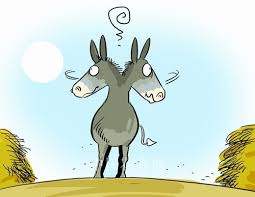 2.2.2. Moral freedom: Moral freedom is the freedom to act in conformity with a chosen moral belief. Free will as a gift of God embraces moral freedom, but in a specific moral context. It is important to see how the human claim to free will can be defended apart from a religious framework.
2.2.2. Moral freedom: Moral freedom is the freedom to act in conformity with a chosen moral belief. Free will as a gift of God embraces moral freedom, but in a specific moral context. It is important to see how the human claim to free will can be defended apart from a religious framework.Most moral-freedom theories rest their case primarily on an appeal to inner experience. In a situation of moral temptation, for example, I sometimes feel that I am free to move freshly toward a personal ideal. In such a case, I sense myself as an agent with power to fashion a self that is more like my ideal self. At another times I am not aware of my moral freedom; I feel bound to the self already formed. In this case, I experience myself as an object rather than as a morally free agent.
Advocates of the moral-freedom position grant that a person’s experience as a morally free agent cannot be known objectively; it can be known only subjectively — that is, introspectively. This knowledge is based on a direct intuition in situations of moral import. Thus, the only freedom that a person can affirm with any certainty is his or her own freedom. For this reason, moral freedom is sometimes referred to as “introspective freedom”or “intuitive freedom.”
Kant put the case for moral freedom on a logical rather than a personal basis. His formula was that “ought implies can”: If one rightly judges that a certain person is morally obligated to act in a certain way, then one must logically assume that he can act in that way, That he possesses an inadequate will that can exert moral control.
An example of moral freedom would be the case of hardened criminals who turn completely from their former ways of life and guide their conduct by a firm commitment to new moral ideals.
2.2.2.1. Critiques of Moral Freedom:
first: The primary evidence advanced in support of the idea of moral freedom is subjective, and subjective evidence is notoriously untrustworthy. In psychology, conclusions derived from the method of introspection are accepted only when confirmed by independent, publicly verified observations. No such evidence is put forward to support the claim that human beings possess moral freedom.
Second: The concept of a person as a “subject” who somehow chooses apart from and undetermined by self as “object” (the person’s formed character) is untenable. It is no more than a rephrasing of the traditional notion of the human will as a cause that is not itself caused; this concept incorporates the unscientific idea of an uncaused event. A choice that does not reflect a person’s established character would be arbitrary — and in most cases, immoral.
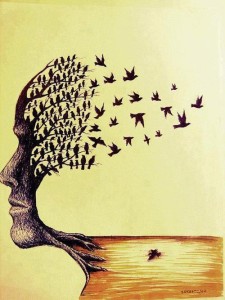 2.2.3. Freedom as an existential framework: The English novelist Joyce Cary’s declaration that “freedom is all our joy and all our pain” suggests an existential alternative. Proponents of existentialism, existentialists, insist that freedom pervades the human condition and is the central fact of human life. Science provide one prospective on the world; science sees everything as objects, and it is appropriate to set objects in a deterministic framework. But to claim that the scientific prospective — abstract, detached, precise, impersonal, unemotional, unconcerned with overall meaning — is the only or the most important perspective is fantastic. You and I are subjects. We are engaged in the project of creating meaning in our lives. We live in a life world, a world utterly different from the science world. The life world is concrete, here and now, stretched toward future and the certainty of death; the science world is abstract. I am thrust into the life world and am concerned, involved, engaged; the science world is detached. I am confronted with ambiguity; the science world is precise. I am suffused with feelings of joy and dread; what I am as a person, the very meaning of my life, is at stake, but the science world is impersonal, unemotional, and unconcerned with life meaning. In this life world I am free, and I am responsible; I am free and responsible to say, authentically, who I am and what the meaning of my life shall be. It is pointless to debate the question of freedom versus determinism. I exist in the framework of freedom. The science world, with its determined objects, is part of my lived world, and I take account of it, but I do not exist in such a world. In the freedom of my lived existence, I am challenged to create meaning out of all the facts : the size of the solar system, the electrochemical nature of my brain, the conflicting welter of cultures, the history of my particular past. But no matter how precisely science describes these objects and traces them to their causes, I know that their meaning depends on what I freely choose to affirm about them.
2.2.3. Freedom as an existential framework: The English novelist Joyce Cary’s declaration that “freedom is all our joy and all our pain” suggests an existential alternative. Proponents of existentialism, existentialists, insist that freedom pervades the human condition and is the central fact of human life. Science provide one prospective on the world; science sees everything as objects, and it is appropriate to set objects in a deterministic framework. But to claim that the scientific prospective — abstract, detached, precise, impersonal, unemotional, unconcerned with overall meaning — is the only or the most important perspective is fantastic. You and I are subjects. We are engaged in the project of creating meaning in our lives. We live in a life world, a world utterly different from the science world. The life world is concrete, here and now, stretched toward future and the certainty of death; the science world is abstract. I am thrust into the life world and am concerned, involved, engaged; the science world is detached. I am confronted with ambiguity; the science world is precise. I am suffused with feelings of joy and dread; what I am as a person, the very meaning of my life, is at stake, but the science world is impersonal, unemotional, and unconcerned with life meaning. In this life world I am free, and I am responsible; I am free and responsible to say, authentically, who I am and what the meaning of my life shall be. It is pointless to debate the question of freedom versus determinism. I exist in the framework of freedom. The science world, with its determined objects, is part of my lived world, and I take account of it, but I do not exist in such a world. In the freedom of my lived existence, I am challenged to create meaning out of all the facts : the size of the solar system, the electrochemical nature of my brain, the conflicting welter of cultures, the history of my particular past. But no matter how precisely science describes these objects and traces them to their causes, I know that their meaning depends on what I freely choose to affirm about them.2.2.3.1. Critiques of Freedom as an Existential Framework:
First: Van Cleve Morris, an existentialist writes:
…We are individually confronted in every waking moment by phenomenal situations to each of which there are numberless responses we could give. But the responses must rise as possibilities in our imagination before they can play a role in genuine choosing. Moreover, no choice is possible unless the free subjectivity is aware of the act of choosing as such. This means, therefore, that the free subjectivity must be aware not only of alternatives but of the act of considering alternatives before one may say that choosing is actually taking place. So-called “blind choosing” is a contradiction in terms.
This interpretation of existentialism, then, holds that an awareness of alternatives is necessary to a genuine choice. It would seem to be only a slight extension of Morris’s view to hold that knowledge about the consequences of alternative actions is necessary before they can be “considered” as “possibilities in our imagination.” But with this qualifications, does’t the existential view lose its distinctive character?
Second: Suppose that we grant an existentialist the extreme assertion that I am always free to choose anything, that nothing at all weights the scales of my choice. Is such freedom worth having? Any meaning to my life must then be imposed through arbitrary choice. For example, the knowledge that people experience self-fulfilment when they are open to experience, accept themselves and others, and function autonomously with a sense of individual identity — such knowledge counts for nothing. Since the choice is arbitrary, I can just as well search for my life’s meaning through being close to experience, rejecting myself and disdaining others, and functioning dependently, with no sense of my own identity. The existentialist concern for freedom in a context of arbitrary choice makes all choice meaningless; how can I create existential meaning out of essential meaninglessness.?
Self-determinists accept the scientific determinists’ insistence that every human act or decision is caused, but they put forward the claim that persons themselves are causal agents. People’s knowledge and values, their hopes and fears, are dynamic factors in their choices. Unlike other animals, human beings can reflect and deliberate before they act; they can give reasons for what they do, and reasons are causes.
Two quite different versions of self-determinism have been proposed. One version conceives the self as passive, as wholly produced and defined by the past. The other version views the self as active, as self-producing and self-defining in the present.
 3.1. Passive self-determinism: Freedom as the absence of outside coercion. Hobbes, Locke, and Hume argued that there is really no problem of freedom or determinism. Freedom means “to act according to the strongest impulse in the absence of external constraint,” to act according to the preferences of one’s own mind,” “to act according to one’s own motives.” Freedom in this sense is completely consistent with the scientific determinists’ position that people’s impulses, preferences, and motives are strictly determined by past events. For this reason, this position is sometimes called “compatibilism” or “soft determinism.”
3.1. Passive self-determinism: Freedom as the absence of outside coercion. Hobbes, Locke, and Hume argued that there is really no problem of freedom or determinism. Freedom means “to act according to the strongest impulse in the absence of external constraint,” to act according to the preferences of one’s own mind,” “to act according to one’s own motives.” Freedom in this sense is completely consistent with the scientific determinists’ position that people’s impulses, preferences, and motives are strictly determined by past events. For this reason, this position is sometimes called “compatibilism” or “soft determinism.”If we refer to common sense and to the everyday way in which we use the term “free,” we can see that freedom means simply the absence of outside coercion and does not run counter to the arguments put forward by scientific determinists. Suppose that i ask a friend, “Did you cut your hair of your own free will?” He may answer, “Yes, I like it that way” or “Yes, it was getting too long for the hot weather.” Or he may respond, “No, army regulations demanded that I cut it.” Notice that in neither set of circumstances does freedom or free will imply indeterminism — that is, an absence of causes for the behaviour. The scientific determinist is obviously right: every act has an identifiable set of causes and is strictly determined by them. The only meaningful distinction is whether the causes of our act stem from our personal desires or are imposed on us from outside so that we are forced to act in a certain way. Our language reflects this distinction quite clearly when it classifies some acts as voluntary and others as involuntary.
A person who is forced at gunpoint to participate in a crime does not fully choose to commit the crime; on the other hand a boy who is late getting to school because he stopped to jump in paddles did freely choose to be late (and will therefore be held morally responsible for his tardiness). We can summarize the idea of passive self-determinism in the statement that we are free to the degree that in our choices we express our selves — what we are and what we want. We are unfree insofar as circumstances limit our self-expression or other person’s force us to do what we do not want to do.
It is granted that certain situations are ambiguous in that they seem to involve a combination of inner desire and outside limitation. For instance, you can freely choose a desired goal (for example, to become a professor), but the means required to attain this goal may be set by forces over which you have no control (for example, expending effort to acquire a college degree). The ambiguity posed by such an example can be clarified by saying that your choice is free when you prefer one set of goals — means over others; your choice is unfree when you are limited to a single option.
3.1.1. Critiques of Passive Self-Determinism: Freedom as the Absence of Outside Coercion.
first: Aren’t there all kinds and degrees of inner coercion that limit the free expression of our selves just as rigidly as outside forces? For example, people driven by a compulsion to wash their hands hundreds of times a day, or people with severe feelings of inferiority that restrict their ability to achieve their own goals, or people dominated by uncontrolled emotional states — are these people “free”in any meaningful sense?
Second: Certainly Mr. A, who “wants” Miss B and “chooses”to marry her because she unconsciously reminds him of his mother, is not as “free” as Mr. C who feels a similar attraction to Miss D but becomes insightfully aware of why he is attracted and re-evaluates the situation in light of this awareness.
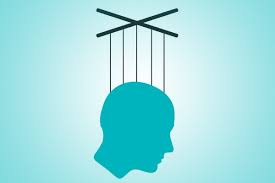 3.2. Active self-determinism: Freedom as insightful awareness. Advocates of freedom as insightful awareness, such as Thomas Aquinas and John Dewey, begin by agreeing with the scientific determinist at several points. They reject indeterminism and hold that all events, including human choices, are caused. They accept the view that a person is not innately endowed with a free will that enables that person to choose independently of culture and past conditioning. Finally, they agree that all human responses must be learned and that wider and wider ranges of human behaviour are subject to accurate prediction. However, holders of this view claim that the scientific determinist and the passive self-determinist overlook one crucial factor in the human equation: the ability of human beings to think and reflect and thus become insightfully aware.
3.2. Active self-determinism: Freedom as insightful awareness. Advocates of freedom as insightful awareness, such as Thomas Aquinas and John Dewey, begin by agreeing with the scientific determinist at several points. They reject indeterminism and hold that all events, including human choices, are caused. They accept the view that a person is not innately endowed with a free will that enables that person to choose independently of culture and past conditioning. Finally, they agree that all human responses must be learned and that wider and wider ranges of human behaviour are subject to accurate prediction. However, holders of this view claim that the scientific determinist and the passive self-determinist overlook one crucial factor in the human equation: the ability of human beings to think and reflect and thus become insightfully aware.People are unfree insofar as their behaving and choosing stem from desires, habits, beliefs, and any aspect of themselves or their environment of which they are unconscious, unaware, or lacking in insight. People are free to the degree that their behaving and choosing are guided by insightful awareness of situation within and outside themselves. People can learn to be free in this sense of the word “freedom”.
In order to predict the outcome of insightfully aware decisions, predictors cannot stand off and add up the past interplay of hereditary and environmental factors because that is not the kind of process confronting them; a predictor would somehow have to live through, step by step, the intricate process of reflective choosing.
The scientific determinist assume that the final word about human action is an objective description of it or a scientific prediction about it. The insightful-awareness theorist claims, on the other hand, that persons can use these descriptions and predictions to make ever more informed, reflective choices. The scientist, then, would not have the last word; the seeking person looking over the shoulder of the scientist would.
No person can be free from culture or free from the past in the literal sense of getting outside either. But reflective thinking is precisely a standing apart from and a taking account of. Such thinking is itself a causal process, the dynamic process of insightful awareness, through which people become self-directing; they become free to make new and creative responses. A person is not simply the effect of previous causes; he or she can also be an agent, an active self, and thereby a causal factor in each present situation.
3.2.1. Critiques of Active Self-Determinism: Freedom as Insightful Awareness.
First: This view uses “free” and “freedom,” but on close inspection, leans far toward the scientific determinist position and is, in fact, no more than a refined version of determinism. Do people really have to “learn” to be free? Is human freedom so limited that it is proportional to the knowledge one acquires about oneself and the world? Doesn’t every normal person, by the very possession of self-consciousness, have at least some dim awareness that he or she can choose and be responsible for whatever life he or she leads?
Second: Are insight, awareness, and reflection clear and definable causal factors in decision-making process? Do they add to or change the complex elements (past learning, present feelings, and so on) that are synthesized in the brain and produce the choice? If the answer to both of these questions is no, it would be fair to conclude that insightful awareness is a vague concept, a symbol with nothing in fact to support it, that it is thus virtually impossible to understand human behaviour in any systematic or practical way.
A final alternative is one that cannot be readily placed in a discrete niche on the freedom-determinism continuum. Freedom as an assumption takes a position that cannot be resolved in terms of the argument s presented for or against the other alternatives.
Mr. Jones cannot give up the idea that somehow he is free. He tries to convince that one of the freedom positions can stand up against the criticisms levelled at it. One by one he considers the arguments in support of the various freedom alternatives: free will, moral freedom, existential freedom, freedom as absence of outside coercion, and freedom as insightful awareness. In each case he then considers the counter-evidence and counter-arguments advanced by the determinists. He reluctantly concluded that none of the freedom positions can be adequately defended. Finally, he decides that the only way to resolve the issue is to assume that he is free. He therefore adopts the following line of reasoning:
I have to admit that I cannot produce evidence or arguments that are convincing to myself or anyone else that human choices are free. However, I find that many things that are important to me make sense only on the assumption that people are free to choose. Foe example, I want in several ways to become a different person from what i am now, and I feel responsible to bring about these changes in myself. If I were to adopt the scientific determinist posture, I would just resign myself to the fact that I am what I am because of what has happened to me in the past. Only when I assume that I am free to change myself (whether I am free or not) does my life take on meaning. And, in dealing with other persons, I don’t want to feel that i am conditioning or manipulating them. If their response to me are to be at all meaningful, I must assume that they respond voluntarily and deliberately — that is, freely.
Proponents of freedom as an assumption grant that scientists have a right to assume the principle of scientific determinism as a basis for carrying on their scientific activity. But the proponents claim that people have an equal right to assume the principle of human freedom as the most meaningful basis on which to conduct their lives. The proponents might admit that human creatures are no more than presumptuous animals who clothe themselves in the fiction of freedom, but where human responsibility and social order are concerned, the assumption of freedom becomes a necessary fiction that is satisfying and workable. Unless freedom is assumed as an operating principle, life is chaotic and futile. This is precisely what the philosopher and psychologist William James learned; he cured his depression by making the assumption that he was free and then acting on that assumption.
4.1. Critiques of Freedom as an Assumption:
First: Ms. X says that she “wants” to become a different person and that she “feels” responsible for changing herself. These “wants” and “feelings” can best be understood as stemming from her past experiences and thus can most reasonably interpreted in a scientifically deterministic framework.
Second: The assumption of human freedom is unnecessary even if it is granted that a sense of personal responsibility is essential to a mature, meaningful outlook of life. For example, other people may force one to accept a position of responsibility.
In speaking of her relationships with other people, Ms. X uses the loaded terms “conditioning”and “manipulating.” She should simply accept the fact that she has an effect on others and that their response to this effect does not have to be “free”(whatever that means) in order to be meaningful.
Conclusion
Having assessed the strengths and weaknesses of the various alternative views on freedom and determinism, you may wish to test whichever position you have tentatively adopted by seeing how it applies to specific kinds of situations, especially to ethical questions.
Since each viewpoint on freedom-determinism can be criticized, it is possible that some combination of views is most defensible. Foe example, might not a religiously oriented person argue that god endowed human beings with freedom of choice — not directly, by giving inborn free will, but indirectly by giving the capacity to think and reflect and thus learn to become self-directing? Can the active self-determinist and existential positions be modified and integrated into a single, consistent position? Scientific determinism and the two versions of self determinism all reject indeterminism and accept the idea that all human behaviour is “caused”; are they, then, three distinct positions, or can they be stated as emphases within one extended theory?
Several of freedom-determinism alternatives revolve around the complex and controversial question of what, in final analysis, a human being really is. When you select your preferred view of human nature, you may wish to re-examine the freedom-determinism option you have tentatively selected — at least to make sure that the two positions you have chosen are consistent with each other.
The word “freedom”is constantly on our lips, and for most of us it is more than an abstract symbol or a meaningless concept. Few ideas are more significant to us or invite more careful scrutiny than that of freedom. Philosophy demands that we be explicit about every concept we use and that we become especially critical about those that are commonplace and appear obvious.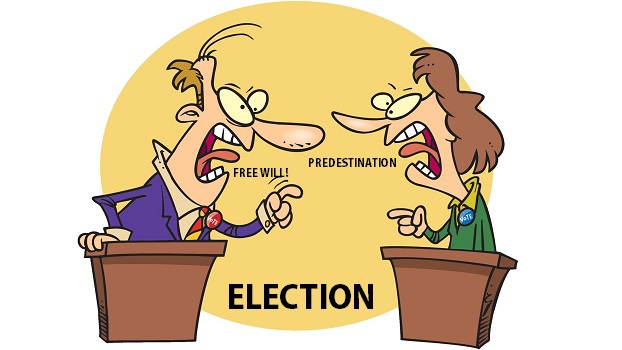

Source: Invitation to philosophy: Issues and options

